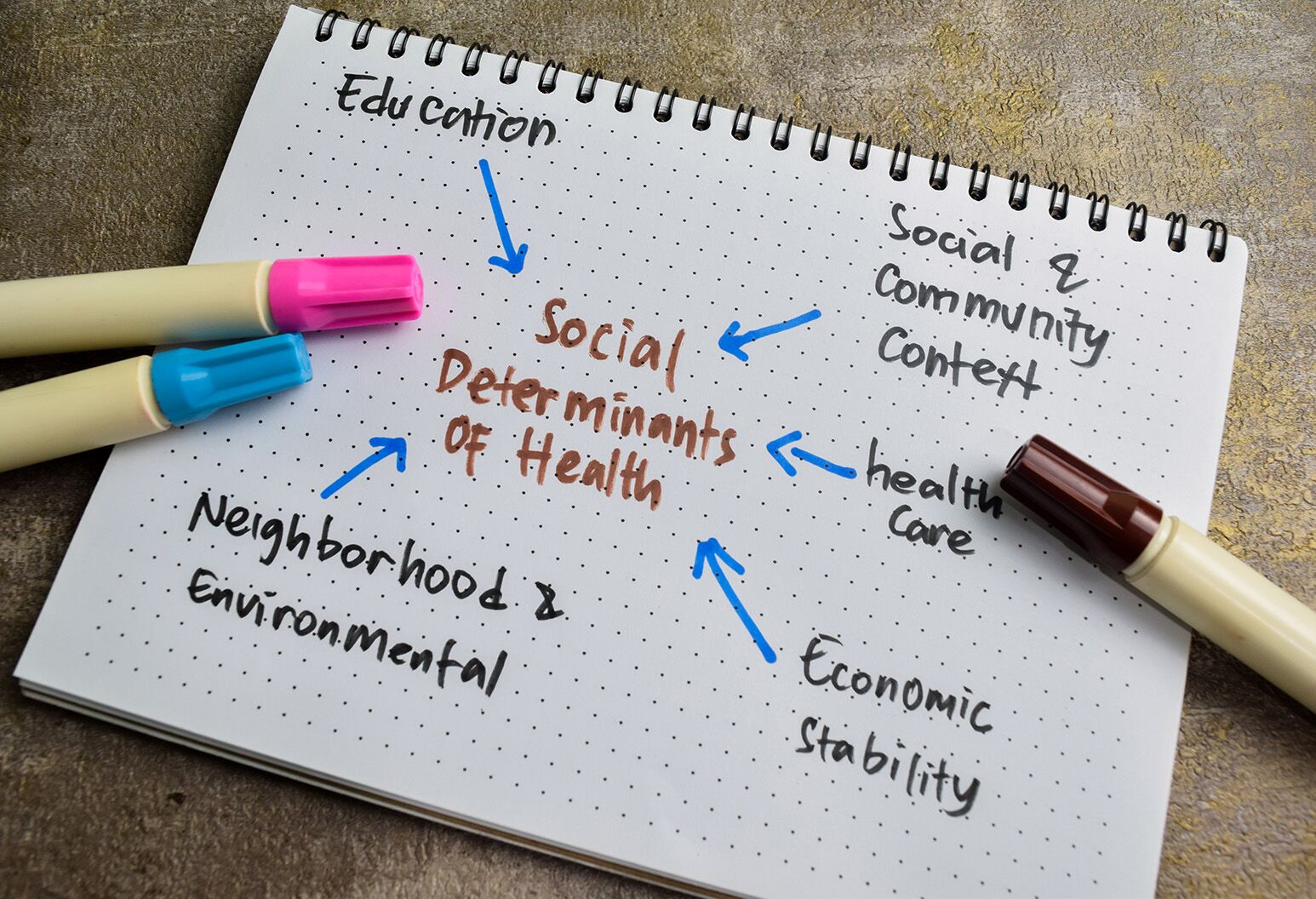Our representatives are available to schedule your appointment Monday through Friday from 9am to 5pm.
For a Northwell ambulance, call
(833) 259-2367.

In New York State, there are more than 100 "medically underserved areas/populations,” according to the federal Health Resources and Services Administration. This is more than an alarming statistic; for those living in these communities, it's a predictor of access to food, safe housing and schools, and life expectancy. These are some of the factors that make up what is known as the social determinants of health.
This article examines the steps necessary to make the needed impact.
Social determinants of health are life conditions that can help people stay healthy or make health all but impossible. These include a person’s income, education and access to health care, housing, food and recreation, all of which can significantly influence health outcomes.
The social determinants of health include:
Where you live plays an enormous role in how long you live. Long Island is one of the wealthiest areas of the country, but numerous low-income neighborhoods are mere blocks away from communities inhabited by multi-millionaires. One is the historically wealthy Garden City, where life expectancy is 87 years, and the historically underrepresented Hempstead, where life expectancy is 74 years.
Access to safe housing, good schools, healthy food and parks and recreation, the prevalence of crime and drugs, the practice of safe sex — all of these are factors that contribute to huge disparities in life expectancy. Even if people receive the finest health care, they still won’t be healthy if they’re obese, smoke, drink too much and don’t exercise. And even if they correct bad habits, they can’t do much if their living situations are causing an unhealthy lifestyle — children won’t find relief for severe asthma if their homes are enveloped in black mold.
The only way to change this narrative is to strengthen and expand access to social services, especially in underserved areas.
Health care organizations already have dialed in to doing their part.
For years, Northwell Health has partnered with Island Harvest, Long Island Cares Inc., The Harry Chapin Food Bank, God’s Love We Deliver, US Foods and Baldor to start Food as Health, which helps communities deemed as “food deserts” by delivering healthy foods to homes where residents are hampered by chronic illness due to poor nutrition. Northwell is also collaborating with Chicago-based startup NowPow to utilize a platform that connects patients to community-based organizations, as well as Harlem Grown, a network of urban farms providing underserved children with the skills and knowledge to produce sustainable and healthy food for their families and community.
More recently, Northwell has continued its efforts to expand access to nutritious food by partnering with InstaCart Health. The leading grocery technology company in North America provide Northwell with tools and resources to its staff, patients and communities that address social determinants of health, including access to healthy food and transportation.
For-profit organizations are delving into this movement, too. In 2019, CVS and Aetna announced a new partnership with Unite Us — an organization that provides a person-centered platform to help build and manage their health and social services.
Private philanthropy has been the driving force for these initiatives and these efforts should be maximized. But when it comes to making a true impact, government action is necessary.
In 2019, the U.S. Congress made history by, for the first time, addressing this issue with the bipartisan Social Determinants Accelerator Act. The legislation includes up to $25 million in federal funds to create a grant program that would help states and local governments concentrate on improving access to health care, healthy foods, transportation and stable housing.
To maximize impact, it also established the Social Determinants Accelerator Interagency Council to offer assistance to health and social service programs in both coordination and technical assistance. The council is comprised of federal and nonfederal members. This is a good start, but more is needed at every level of government to address the social determinants of health more fully.
Healthy people make for healthy and thriving communities. It’s also the right thing to do.
Our representatives are available to schedule your appointment Monday through Friday from 9am to 5pm.
For a Northwell ambulance, call
(833) 259-2367.